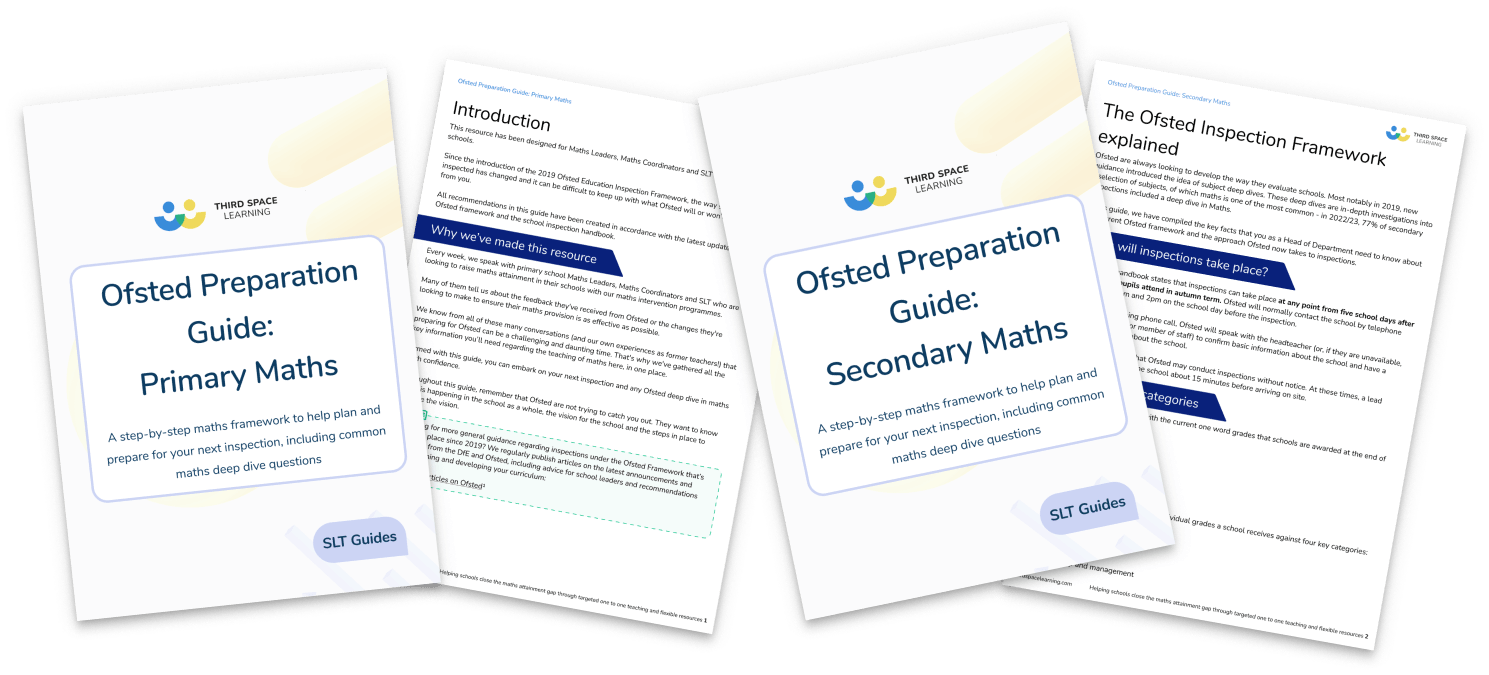The 7 Principles Of Effective School Leadership
Advice on truly effective leadership in schools is hard to come by, whether you are a primary headteacher with years of experience, or if this school term is your first as a member of the school leadership team.
Fortunately Brian Walton (@oldprimaryhead1) has over a decade of primary headship under his belt and has experienced almost everything a primary school can throw at him.
There is a particular learning curve with the responsibility of taking control of a school. New school leaders (especially those that cover in unexpected or sudden circumstances – which is rather common) have often said to me:
“Oh, I’m only acting as the head!”
To this I always reply:
“We are never only acting. The fictions created in schools are VERY real.”
This is true of all school leaders and as we settle in to another academic year I thought I would explore some of the recurring issues that leaders are facing today.
The biggest challenge for headteachers or new school leaders is – often – the loneliness. The sense that they, and they alone, have to ensure the problems, trials and tribulations of school life are solved.
Nothing is further from the truth of course.
Ofsted Preparation Guides
Prepare for your next inspection with this step-by-step maths framework. Includes checklists and questions for an Ofsted deep dive in maths.
Download Free Now!A school is a team… Part of the purpose a school leader has is in creating a climate where everyone can see what needs to be done and is excited about doing it.
With that in mind, I wanted to share a few of the thoughts about primary school leadership that I have collated over my years of headship. These are all things I feel can contribute to effective leadership in schools, so I hope you and all SLT in school can profit from them too.
What is effective leadership in schools?
Effective leadership in schools is bound to have as many definitions and interpretations as there are school leaders. That said, there are some common element to effective school leadership.
We know that the quality of school leadership has a huge impact on pupil learning second only to the impact classroom teachings. We also know that certain leadership practices such as developing people and actively designing the organisational structures also correlate with effective school leadership. Relationships are key: school leaders improve teaching and learning most powerfully though their influence on their staff motivation; and distributed leadership with responsibilities shared more widely is also more effective in a school.
Aware of the research and also, drawing on my 20 years in school leadership I’ve created my own set of principles or tips for effective leadership that I can turn to when things aren’t going to plan or the future looks difficult or uncertain.
I even use them as a decision making tool; if my decision can be made in accordance with these principles, then I’m doing okay!
- The golden rule that underpins them all: Keep it Simple
- 1. PURPOSE: In school leadership you need to be clear about your purpose
- 2. TIME: Create time for the important things
- 3. LISTS: School leaders need lists!
- 4. VISIBILITY: Make sure as a headteacher you have a strong visible presence even if you don’t feel like it.
- 5. BALANCE: Don’t take work home with you – dump it.
- 6. KINDNESS: Effective school leadership requires you to be honest and kind
- 7. HONESTY: Remember that how the school leader behaves is a sign to others
- Know Your School – This is What Effective Leadership is about
The golden rule that underpins them all: Keep it Simple
In my time, I have:
- created data systems that make no sense,
- written a report about a report,
- created a policy on policies,
- written vision statements that no one remembers (or cares for),
- carved out rules that were almost impossible to follow;
- given out directives that – when applied – took an eternity to complete.
Usually these mistakes were made when I tried to over complicate matters. So at the outset, I’d like to say that, although the following 7 principles are those that I believe are essential for effective school leadership, I never forget the first golden rule: Keep it simple.
1. PURPOSE: In school leadership you need to be clear about your purpose
It is so easy to get bogged down in the marshes of hyperbole that flood the plains of education. The ‘World class’ dictionary of edu-speak sets up some pretty ridiculous expectations and sometimes we feel guilty of ‘being human’ and having less ambitious visions.
For me, I set smaller targets and I keep to principles. Every year I write a statement or sometimes a word on the board in my office. A few years ago it was ‘Focus’; last year it was ‘Challenge’… these are well researched statements to myself as a leader.
They don’t need a sixteen page school development plan to support them. They are statements made in the context of the school I am a leader in. They aren’t for anyone but ME.
This year I have written:

This is because I know that in the past I have allowed the fear of what might happen when I tackle issues to stop me doing what I have felt is right. I would say to every leader this year:
What is your statement?
What is your focus within the context of the place you are working?
I hope it’s not to be ‘world class’ whatever that really means… I hope you are focusing on how you will evolve in your role this year.
2. TIME: Create time for the important things
Like some sort of aspirational Time Lord, you need to be able to manipulate your time when you take the leadership seat.
Wasting it is a dangerous game to play.
The problem is time plays out very differently to the way it was before. You are likely not teaching all day.
There are meetings, discussions, email (oh! There ARE emails!), sudden and unexpected issues, long term strategy issues, late night meetings, early morning meeting… meetings – (people like to meet), crisis on toast – sudden, unexpected, expected, bizarre and time consuming, day to day stuff that pops up like an angry ninja, your never ending list truly feels never ending…
Put quite simply, you have to create time and the best way to do this is:
Don’t do ANYTHING that you feel will not have an impact or outcome that is needed. Be brutal with this train of enquiry. Be honest. Often, the best advice I ever give new leaders or teachers is – ‘You’re wasting your time’.
They hate hearing it.
This is because it is often the things we like doing that we waste our time on. However when you look at things from a distance and you listen to people saying they ‘Have no time…’ question what they are doing and why they are doing it.
It will take a little bit of time to get this right but organise yourself so that you have some sort of sixth sense of the coming needs.
Read more: Make your school a model of effective primary teaching practice
3. LISTS: School leaders need lists!
Firstly, these lists need to work for you. As you will see below, I have recently moved to a simple and rather messy approach:

It’s not rocket science. It’s quick and easy. It’s in my language and not edu-speak – I am out to impress no one with this.
It’s just a way of making me think of what I need to do when I finish what I was doing. I also like to have a sense of achievement when something is either finished, or moved on.
This technique also acts as a barometer measuring the school pressure… I can see what I need to be done and ensure that I am prepared for it rather than let it surprise me.
One of the first things a new leader needs to do is make sure they have a VERY good diary… This is my extension of this.
The problem with headship is you rarely get the satisfaction of completion. This coming week many of those post-its will be re-written and colour coded based on what I am doing and what has been delegated.
I still know what needs to be done but I am also aware I can not do it all.
4. VISIBILITY: Make sure as a headteacher you have a strong visible presence even if you don’t feel like it.
Ask anyone who is not a headteacher or school leader what they do and you will usually get a very mixed response, quite often sarcastic or vague. When you take on the role, another aspect of leadership that takes time and a thick skin to overcome is how centrally you will be critiqued and discussed.
This can happen in the pub (including from your staff), over the checkout counter, on social media (public and private), on the playground and over the dinner table. In experience this is rarely positive chat. I have never come across a school leader loved by everyone.
The public view is often very critical of leaders and school leaders are no different. I think the current climate we are in is even more toxic. Sometimes, especially when you feel your neck burning the most, the reaction is to hide away; to find some policy to write or problem to solve – in your office. This is the last thing you should do. During these times you need to be seen.
- You need to walk out on to the playground.
- You need to acknowledge the criticism in a calm and rational way.
- You need to wear a high vis jacket and stand tall.
Though inside you might be a wreck… stand tall and remember you can see things that most of them can’t. They never know the full story and only have a version of it – usually very one sided. I usually find that by talking to parent on the playground ‘issues’ are quickly resolved because they suddenly say – “Oh, I didn’t think about that”.
This is sometimes the hardest thing we do in education.
When the collective boils over it can also be very scary and stressful. Experience tells me that when we rationally and calmly ride these difficult times (in public at the very least) they almost always go away. Sometimes they are replaced by new problems and sometimes they need mediation or further work.
Hiding from them fuels the issue and allows voices to go unchallenged and perspectives to be lost for longer than necessary. It is important to lead a school with confidence, and by doing this most of the problems you encounter on a daily basis will simply fade away.
Read more: How to increase parental engagement in primary schools
5. BALANCE: Don’t take work home with you – dump it.
I have seen the impact of stress so often in my role supporting schools and on a personal level when times are particularly difficult. School leaders come up against it in many forms and at many levels.
This can range from low level day to day concerns and worries to full on crisis management.
Managing and understanding your reaction to this is a critical aspect of leading a school. You need to be balanced and consistent – even when you feel like everything is falling to pieces.
My dad, who was a factory foreman told me:
At the end of a shift I would sit in the car and I would not put the keys into the ignition until I was ready to go home. Sometimes I would sit there for a very long time.
You have to be able to go home and carry on with your life. If your life IS school, I always think… what would it be like to live with you? Imagine? I am blessed that my wife really does not care about my job in the same way I do.
This might sound brutal, heartless even. Sometimes I’ll wander our house lamenting, “No one understands what I have to deal with”, But, you need balance; you need people to bring you back to the world away from school.
Your world, your family, your hobbies and your interests… I go home and ‘very’ rarely discuss my day. If something is bugging me before bed – I write it in to a book and I know that there is nothing I can do about it until the morning.
This is one of the most important things to ensure effective leadership in schools as we all need a break from time to time, so don’t be scared of taking one.
6. KINDNESS: Effective school leadership requires you to be honest and kind
As a school leader you will have to tell people things they will not like.
Recently, this seems to be the only constant in school leadership. We have no money, redundancies, music and arts provisions are being cut, tighter safeguarding controls, higher accountability, more rigorous systems in learning…. The list goes on and YOU as the school leader will be the harbinger of each message.
A good school leader needs to be clear when giving these messages. They also need to show empathy. They need to remember what it was like to be a teacher of ‘that class’ or what it might feel like being the parent of ‘that child’. Most importantly they need to remember that their behaviour determines the behaviour of others.
As school leaders we all carry our experience scars with us, but the most important thing is to know how to use these experiences to grow and flourish.
Walk in the boots of your community
Being honest and kind is no big ask for a school leader. Trying to put yourself in the boots of your community and spending a little time trying to understand the impact (even though you need to follow through on the action) goes some way to forming peoples opinions about you in the long term.
Only one thing really matters for most school leaders and that is your longevity. How long you can survive doing the greatest job in the world – being the leader of a school community. Longevity devoid of compassion or moral purpose is not the same as staying at the top with integrity and a passion for doing what is needed and what is right.
7. HONESTY: Remember that how the school leader behaves is a sign to others
In many ways I think this is one of the most important aspects for a school leader. If every time a teacher brings you a child protection concern your reaction is to roll your eyes, puff out your cheeks and look like you want to cry… that will be what the member of staff takes away.
What you say is critiqued by your staff each and every day. It is important that you have a think how you come across.
Are you a positive or negative charge?
Do you instill a sense of hope in your staff when times are hard?
Or do your meetings involve lambasting your most difficult challenges as though they were sent to destroy you through spite and bad luck?
Taking time to breath and reflect I keep asking myself – what am I bringing to this school?
If the answer is negativity… maybe I need to rethink my impact.
Being a school leader is an amazing job. You keep close to the heart of why you became a teacher. You can see (when things go right) the massive impact you have.
But, it is a role that needs constant reflection and brutal honesty.
It is not for everyone…
This article was inspired by @MrHeadPrimary blog post on first taking the reins at his school, and his insights into the things he hadn’t expected about leadership. In honour of him, here’s my final ONE piece of advice to someone taking on a leadership role in their school. It’s not a word, or a tip for SLT, it’s a mantra:
Know Your School – This is What Effective Leadership is about
The challenges, context, the worst things about it and the best things about it… be able to truly understand the strengths and the gaps.
Know it from your perspective – but also try to see it from the parents’ perspective, the children’s and the staff. Sometimes we think we know our school and then when someone tells us something that conflicts with our perception we dismiss it… It is only through looking at it from different angles that we truly get to know our schools and begin to lead the community rather than our role.
This post is part of our Confessions of a Primary School Headteacher series.
Read more Confessions here:
DO YOU HAVE STUDENTS WHO NEED MORE SUPPORT IN MATHS?
Every week Third Space Learning’s maths specialist tutors support thousands of students across hundreds of schools with weekly one to one tuition designed to plug gaps and boost progress.
Since 2013 these personalised one to one lessons have helped over 150,000 primary and secondary students become more confident, able mathematicians.
Learn about our experience with schools or request a personalised quote for your school to speak to us about your school’s needs and how we can help.





